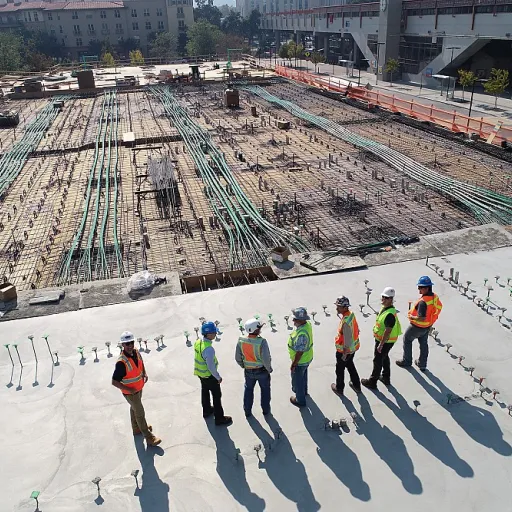
Understanding the Indian Business Landscape
Grasping the Nuances of the Indian Business Environment
In the fast-evolving landscape of Indian businesses, it's essential for project managers to understand the unique cultural, economic, and regulatory contexts that influence the management process. This knowledge sets the stage for effective resource management and strategic decision-making. To navigate the complexities of the Indian market, project managers should familiarize themselves with local enterprise environmental factors and organizational processes. These range from government policies and economic trends to cultural norms and business etiquette. An awareness of these factors helps project managers in making informed decisions and adapting to the local business climate efficiently. Regulatory compliance and understanding domestic policies are crucial for organizational success. Project managers should keep abreast of the ever-changing regulations that could impact project timelines and resource allocation. By staying informed, they can prevent potential roadblocks and ensure smooth project execution. Moreover, leveraging organizational process assets, such as knowledge bases and management templates, aids in aligning projects with the company's strategic objectives. Utilizing these resources allows for streamlined procedures and ensures adherence to best practices for project success. In this context, the role of a front office manager in an Indian company becomes pivotal. They often play a critical part in establishing communication channels and facilitating the flow of pertinent information across teams, assisting project managers in their quest for efficiency and success. This interconnected approach fosters an environment conducive to optimizing organizational assets and enhancing project outcomes.Effective Communication and Negotiation
Mastering Communication Dynamics
In the vibrant landscape of Indian companies, effective communication emerges as a pivotal aspect for any project manager. Understanding and navigating the intricate cultural and lingual nuances is essential in fostering successful interactions and negotiations. Indian businesses often operate within diverse teams, comprising members from varied linguistic and cultural backgrounds. This diversity can sometimes lead to communication barriers, making it crucial for project managers to excel in their communication strategies. A project manager in India must prioritize clear and concise communication while respecting cultural sensibilities. Active listening forms the bedrock of communicating effectively, ensuring that both verbal and non-verbal cues are correctly interpreted. This comprehension aids in minimizing misunderstandings and promoting a harmonious work environment. Negotiation, an integral facet of management practices, also relies heavily on effective communication. It requires the project manager to leverage their understanding of organizational processes, asset management, and enterprise environmental factors. By doing so, they can successfully navigate through negotiations, ensuring optimal resource allocation and alignment with the organizational process policies and procedures. Utilizing comprehensive management software can also enhance communication. By ensuring seamless information exchange, such tools contribute to the optimization of project management processes. Project managers can thereby ensure clarity in communication, leading to overall project success. For a deeper understanding of how technology can aid communication in project management, explore enhancing efficiency with office management software. To sum up, for project managers in Indian companies, mastering the art of effective communication and negotiation is indispensable. By refining these skills, they not only manage teams and resources more efficiently but also drive their projects towards successful outcomes.Resource Management and Allocation
Mastering Resource Allocation and Management
In the dynamic environment of Indian companies, mastering resource management is crucial for the success of projects. Project managers must ensure efficient allocation of both human and physical resources to meet objectives while adhering to organizational process assets and procedures. This involves understanding the intricate balance between optimizing resources and respecting the enterprise environmental factors that can influence decision-making. To effectively manage projects, project managers need to develop a deep understanding of the organizational process, allowing them to allocate resources efficiently. Here are some essential aspects to consider:- Identify Available Resources: Begin by taking stock of the human resources, technological assets, and physical resources at your disposal. This includes assessing management software and other tools that can streamline tasks and enhance team productivity.
- Utilize Knowledge Bases and Best Practices: Leverage existing assets project templates and organizational process knowledge bases. These resources will provide valuable insights and procedural guidelines, allowing for better decision-making and project success.
- Process Evaluation: Use management templates to periodically assess and adjust your processes, ensuring alignment with industry best practices and the specific needs of the organization. This ongoing evaluation will help in enhancing the overall efficacy of resource management strategies.
- Software Integration: Embrace technological proficiency by integrating management software that aids in streamlining processes. This will enhance your ability to monitor project progress and resource allocation in real-time.
- Balancing Multiple Projects: Often, project managers must juggle multiple tasks simultaneously. Developing an efficient time management strategy is critical for maintaining focus and ensuring timely delivery.
Technological Proficiency and Adaptability
Embracing Technological Advances and Adaptability
In today's fast-evolving business environment, having a solid grasp of technological proficiency and adaptability is crucial for project managers operating in Indian companies. As businesses strive to optimize productivity and cost-efficiency, technology serves as a formidable ally in project success. Effective project management requires a nuanced understanding of both the tools and platforms currently reshaping industries. Here’s how project managers can leverage technology:- Management Software: Utilizing robust management software not only streamlines processes but also facilitates seamless communication within teams, enhancing the overall organizational process. Cultivating familiarity with leading platforms helps in managing resources and ensures alignment with enterprise environmental standards.
- Resource Allocation Tools: These tools are indispensable for managing projects across diverse teams. They help in the effective distribution of human resources, physical assets, and time, ensuring that priority tasks receive immediate attention.
- Knowledge Bases and Best Practices: Project managers must possess a strong foundation in organizational process assets and should utilize knowledge bases for insights into best practices. This drives strategic decision-making and enhances the adaptability of procedures to varying projects.
- Adaptation to Environmental Factors: Recognizing and incorporating enterprise environmental factors such as policies and procedures help in customizing processes to fit organizational needs, ultimately leading to improved project outcomes.
Leadership and Team Building
Fostering Leadership and Building Cohesive Teams
In the dynamic environment of Indian companies, effective leadership and team building are crucial for project managers. The ability to lead a team through complex projects while maintaining morale and productivity is a skill that can significantly influence project success. Understanding the cultural and organizational process assets within an Indian context can help project managers navigate these challenges.
Leadership in project management involves more than just guiding a team. It requires a deep understanding of human resources and the ability to manage diverse teams. Project managers must be adept at recognizing the strengths and weaknesses of their team members and allocating resources effectively. This involves not only the physical resources but also the human and knowledge-based assets that are vital for the success of any project.
Building a cohesive team is an ongoing process that involves clear communication, as discussed in the section on effective communication and negotiation. Project managers must establish clear policies and procedures to ensure that all team members are aligned with the project goals. This alignment is crucial for maintaining efficiency and ensuring that the team can adapt to any changes in the project scope or timeline.
Moreover, fostering a positive team environment can help mitigate risks and solve problems more effectively. When team members feel valued and understood, they are more likely to contribute innovative solutions and collaborate effectively. This is where the project manager's leadership skills are put to the test, as they must balance the needs of the organization with those of the team.
Incorporating best practices from successful projects and utilizing management software can streamline processes and enhance team performance. By leveraging these tools, project managers can ensure that their teams are well-equipped to handle the challenges of the project lifecycle.
Risk Management and Problem Solving
Mastering Risk Management in Indian Enterprises
In the dynamic environment of Indian companies, project managers must be adept at identifying and mitigating risks to ensure project success. Understanding the unique organizational process assets and enterprise environmental factors is crucial in this context. These elements can significantly influence how risks are perceived and managed within the organization.
Effective risk management begins with a thorough analysis of potential threats and opportunities that may impact the project. This involves leveraging management templates and knowledge bases to anticipate challenges and develop robust strategies. Project managers should also be familiar with the organizational policies and procedures that guide risk management processes.
Problem-solving skills are equally important. When unexpected issues arise, project managers need to quickly assess the situation, evaluate available resources, and implement solutions that align with the project's objectives. This requires a deep understanding of resource management and allocation, as discussed earlier, to ensure that human resources and other assets are optimally utilized.
Moreover, fostering a culture of open communication within teams can help in early identification of risks. Encouraging team members to share insights and concerns can provide valuable information that aids in proactive risk management. This collaborative approach not only enhances the project management process but also strengthens team cohesion and trust.
Incorporating best practices from successful projects and continuously updating risk management procedures can further enhance a project manager's ability to navigate challenges. By staying adaptable and informed, project managers can effectively manage projects, ensuring that they are completed on time and within budget.













